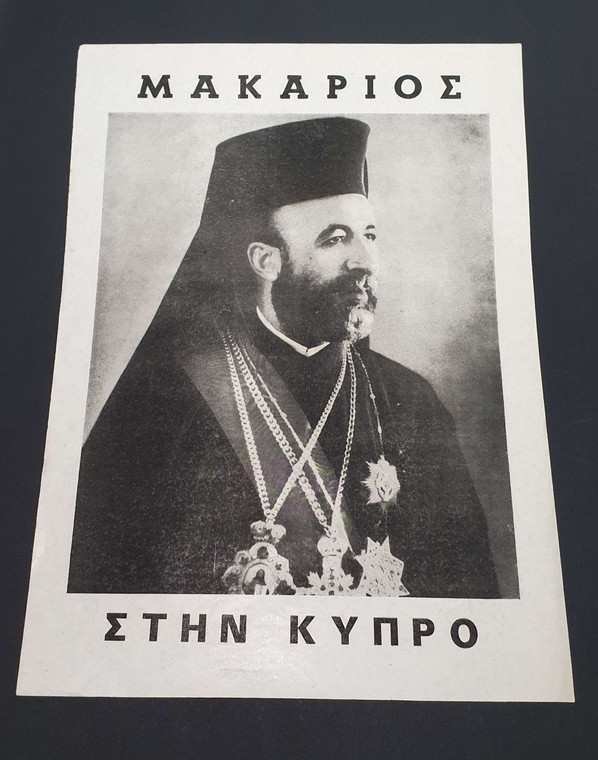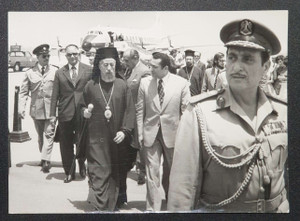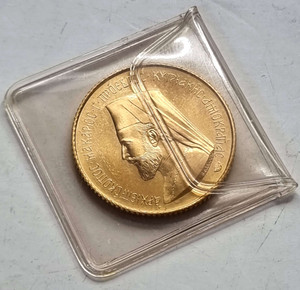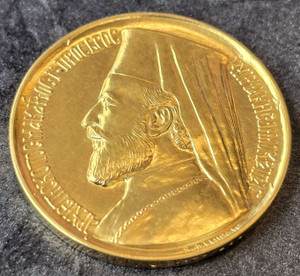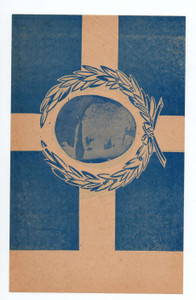
ARCHBISHOP MAKARIOS RETURNED TO CYPRUS AFTER EXILE ORIGINAL OUTDOOR WALL 1959 POSTER 36CM X 50CM
On 20 August 1955, Greece submitted a petition to the United Nations requesting the application of the principle of self-determination to the people of Cyprus. After that, the colonial government of Cyprus enforced the anti-sedition laws for the purpose of preventing or suppressing demonstrations in favor of union with Greece; but the archbishop defied them and continued demanding self-determination for Cyprus.
In October 1955, with the security situation deteriorating, the British governor, Sir John Harding, opened talks on the island's future. By this stage, Makarios had become closely identified with the insurgency, and talks broke up without any agreement in early 1956. Makarios, vilified in the British press[3] and viewed with suspicion by the British authorities, was abducted by Special Branch officers while attempting to board a flight at Nicosia airport. The joint police/military plan, codenamed Operation Apollo, saw Makarios exiled to Mahe Island in the Seychelles on 9 March 1956, as a 'guest' of Sir William Addis, Governor and Commander-in-Chief of the Seychelles. The Archbishop and his staff were flown to Aden and then on to Mombasa. At the Kenyan port the party were embarked in the East African Naval Vessel Rosalind, escorted by the frigate HMS Loch Fada. The flotilla arrived in Port Victoria on 14 March.
In the latter years of the 1950s, the Turkish Cypriot community first began to float the idea of Taksim or partition, as a counterweight to the Greek ideal of enosis or union. Advocates of Taksim felt that the Turkish Cypriot community would be persecuted in a Greek Cyprus, and that only by keeping part of the island under either British or Turkish sovereignty could the safety of the Turkish Cypriots be guaranteed. In this way the Cyprus dispute became increasingly polarized between two communities with opposing visions of the future of the island.
Makarios was released from exile after a year, although he was still forbidden to return to Cyprus. He went instead to Athens, where he was rapturously received. Basing himself in the Greek capital, he continued to work for enosis. During the following two years he attended the General Assembly of the United Nations where the Cyprus question was discussed; and he worked hard to achieve union with Greece.
On March 1, 1959, the archbishop returned to Cyprus to an unprecedented reception in Nicosia, where almost two-thirds of the adult Greek Cypriot population turned out to welcome him. Presidential elections were held on 13 December 1959, in which Makarios defeated[5] his rival, lawyer Ioannis Klerides, father of future president and Makarios ally Glafkos Klerides, receiving two-thirds of the vote. Makarios was to become the political leader of all Cyprus as well as the communal leader of the Greek Cypriots.


